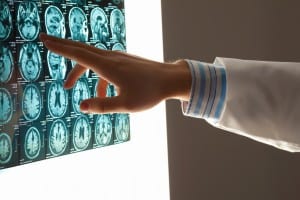Why TBI Diagnoses Are Missed in Emergency Rooms
May 22, 2017
Why TBI Diagnoses Are Missed in ERs
Each year, about 2.5 million Americans visit an emergency room (ER) due to a traumatic brain injury (TBI).1 Tragically, nearly 60 percent of these TBI survivors are misdiagnosed in ERs. These misdiagnoses can delay essential treatments, increasing the risks that:
- TBI symptoms will continue to progress.
- When treatments are ultimately administered, they will be less effective.
- TBI survivors will have worse prognoses.
The following presents a closer look at why TBIs are so often missed in emergency rooms. If you or a loved one has already been diagnosed with a TBI, we encourage you to Contact the Amaro Law Firm to talk about your situation and find out if you are eligible for financial recovery for your traumatic brain injury.
7 Reasons TBIs Are Commonly Misdiagnosed in ERs
TBI-related factors and ER-related factors can both contribute to TBI misdiagnoses.
In terms of TBI-related factors, TBI misdiagnoses can stem from the facts that:
- TBIs can start with generic symptoms –Nausea, vomiting, dizziness, fatigue, and headaches are a handful of the symptoms that commonly arise in the immediate aftermath of a TBI. These symptoms are fairly general, echoing the symptoms of various other conditions. For instance, it’s not uncommon for these (and other generic TBI symptoms) to be misinterpreted as the signs of a stroke, neurological disorders, or even depression.
- TBIs often have latent symptoms – Some TBI symptoms can lay dormant for days or even weeks after the event that caused the brain injury. For example, mood disorders, coordination problems, and cognitive impairments can take time to present themselves. This means that these symptoms are not readily apparent to ER professionals, making it more difficult for them to detect the presence of a TBI.
- No two TBIs are exactly alike – Brain experts have described TBIs to be like snowflakes or fingerprints because every TBI is unique. This partly due to the fact that nobody has the exact same brain or brain cells as anyone else. It’s also related to the fact that TBIs can vary widely in the region(s) of the brain affected and the extent of the damage sustained.
- There is currently no definitive testing method for diagnosing TBIs – No single test can definitively detect the presence of a TBI at this time. Instead, a series of tests are usually needed to diagnose TBIs, and the types of tests required can vary from patient to patient (because, as noted above, TBIs can be radically different from patient to patient).
In terms of ER-related factors, TBI misdiagnoses can arise from the facts that:
- ERs can have poor triage for TBIs – The triage process in ERs is often informed by how patients respond to nurses’ and doctors’ questions. If the right questions aren’t asked – or if the TBI survivor is unable to explain certain information (due to the injury), CT scans and other tests may not be administered. These types of triage problems can mean that important signs of TBIs can be overlooked, increasing the risk of misdiagnoses.
- ERs can be very hectic – The fast-paced nature of ERs can mean that medical professionals only have a short amount of time to evaluate patients’ conditions. This environment can contribute to oversights, misinterpretations, and misdiagnoses of TBIs.
- ERs don’t always or necessarily provide (or prescribe) follow-up care – Given that TBI symptoms can take time to present themselves, follow-up monitoring can be pivotal to recognizing “new” symptoms and properly diagnosing TBIs. ERs are not places that typically provide follow-up monitoring. They may also fail to prescribe follow-up care if the TBI is wrongly diagnosed as some other condition.
Get Experienced Help with Your Recovery: Contact a Houston Brain Injury Lawyer at the Amaro Law Firm
A Houston brain injury lawyer at the Amaro Law Firm is ready to review your potential claim and explain whether you have legal recourse to financially recover for your TBI.
Call (713) 352-7975 or Email Our Firm to schedule a free consultation and get the legal advice you need to position your potential claim for success. Our attorneys are dedicated to advocating the rights of TBI survivors and helping them secure the compensation and justice they deserve.
Our record of success and exceptional representation has earned us 5-star ratings on Google and Facebook.
_____________________________________________________________________________
1: According to the Centers for Disease Control & Prevention (CDC)
